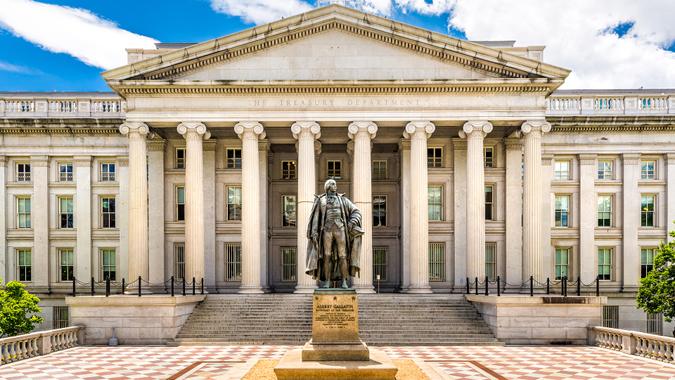Bittrex fined $29 million, largest sanction in crypto history

mandritoiu / Shutterstock.com
The Treasury Department fined crypto trading platform Bittrex $29 million for apparent violations of sanctions against Cuba, Ukraine-related, Iran, Sudan and Syria — representing the largest virtual currency enforcement action to date, according to a statement.
The Future of Finances: Gen Z and how they relate to money
Looking to diversify in a bear market? Consider these 6 alternative investments
Bittrex agreed to pay $24.2 million to the Treasury’s Office of Foreign Assets Control (OFAC) to settle its potential civil liability for 116,421 alleged violations of multiple sanctions programs, according to the department.
“As a result of deficiencies related to Bittrex’s sanctions compliance procedures, Bittrex was unable to prevent individuals apparently located in the Crimean region of Ukraine, Cuba, Iran, Sudan, and Syria from using its platform to participate in virtual foreign exchange-related transactions worth approximately $263,451,600.13 between March 2014 and December 2017,” OFAC said in a release.
Compliance infrastructure a challenge for some
Ari Redbord, head of legal and government affairs at blockchain intelligence firm TRM Labs, said: “We’ve now seen a series of enforcement actions – call them the Bit actions – against cryptocurrency companies Bitpay, Bitgo and now Bittrex. And they’re all for essentially that same – that is, for not having the compliance infrastructure in place to stop users in sanctioned jurisdictions like Iran from trading on their platforms.
“OFAC – through these actions and the October 2021 guidance – has made it clear that it expects businesses to have blockchain intelligence tools like TRM Labs as well as geofencing tools to reduce the risk of sanctions.”
Redbord added that an important point to remember is that this activity occurred between 2014 and 2017 — early days of crypto compliance.
“I think you’ll find a very different program in place today,” he said.
Treasury Dept. says exchanges are responsible
OFAC Director Andrea Gacki said in a statement that when virtual currency firms fail to implement effective sanctions controls, “they can become a vehicle for illegal actors who threaten US national security.”
“Virtual currency exchanges operating worldwide should understand both who – and where – their customers are,” Gacki said. “OFAC will continue to hold accountable firms, in the virtual currency industry and elsewhere, whose failure to implement appropriate controls leads to sanctions violations.”
Bittrex said, “As a growing company, over the relevant period we routinely reviewed and improved these features,” according to CNBC.
This latest development is part of a recent series of enforcement actions against crypto companies, most notably Ethereum-based cryptocurrency mixer Tornado Cash, which OFAC sanctioned in August.
OFAC said in August that Tornado Cash “has been used to launder more than $7 billion in virtual currency since its creation in 2019. This includes over $455 million stolen by the Lazarus Group, a Democratic People’s Republic of Korea (DPRK) state-backed hacking group that was sanctioned by the U.S. in 2019, in the largest known virtual currency heist to date.”
More from GOBankingRates


